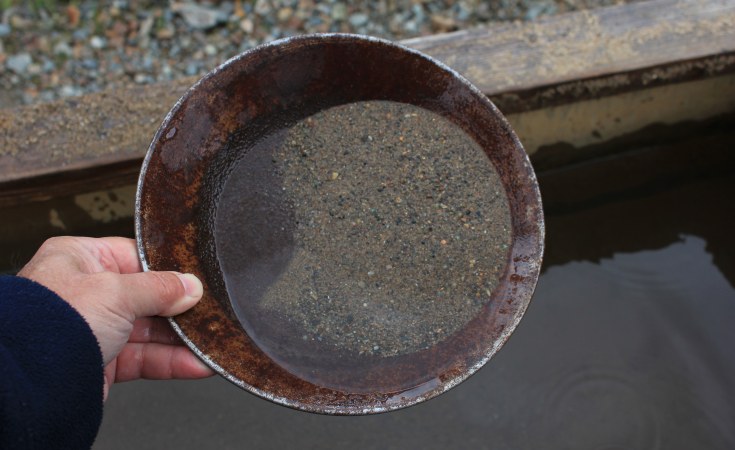Solid minerals are critical national assets - and should be prioritised like the country's oil and gas exploration.
Nigeria's mining sector is diverse in mineral resources that make a significant contribution to the nation's gross domestic product. The country is endowed with an estimated US$700 billion in commercially viable minerals, giving it the capacity to diversify its revenue sources and boost foreign exchange earnings. Minerals include barite, bitumen, iron ore, lead, zinc, coal, limestone and gold.
However, the mining sector faces multiple challenges. Its poor performance can be attributed to various factors including opaque extraction, insecurity and organised crime.
Nigeria's natural resources have been exploited by foreign criminals for decades, and the extractive sector is the most recent target. Since early 2020, several Chinese nationals have been arrested in Nigeria for their involvement in illegal mining.
In April 2020, police in Zamfara State arrested two Chinese nationals for allegedly engaging in illegal mining in the Bukkuyum locality, where the federal government had banned all mining activities to curb killings by armed bandits. In September 2022, a Chinese national was arrested by Economic and Financial Crimes Commission (EFCC) operatives in Ilorin, Kwara State, in possession of a truckload of minerals suspected to be lepidolite.
Policy inconsistencies have created disorder across mining sites and activities
In July last year, the EFCC arrested 13 more Chinese nationals for allegedly engaging in illegal mining. A month later, an illicit mining company operated by Chinese nationals in Akwa Ibom State was closed down. The firm was unable to provide authorisation documents for titanium ore mining. The firm was unable to provide authorisation documents for titanium ore mining.
Over the years, policy inconsistencies have created disorder across mining sites and activities. The lack of comprehensive legislation has enabled illegal mining characterised by inefficient manual mining techniques, unlawful trading of highly priced minerals, severe ecological degradation, spread of diseases and huge loss of government revenue through smuggling. This has opened the door for foreign organised criminals to exploit illicit minerals trade nationwide.
The recent focus has been on gold mining. In the banditry-affected north-west and central areas, loose criminal networks engaged in illegal gold mining have ties to foreign actors and facilitate trafficking. Most criminal markets for gold in Nigeria are driven by foreign demand but propped up by local actors. Foreign networks operate like their local counterparts and have repositioned their activities in the criminal value chain through direct involvement in illicit gold mining in remote villages and forests.
The ENACT project spoke to various law enforcement officials on condition of anonymity. A senior police officer in Zamfara State in north-west Nigeria said the incursion of foreign criminals was happening because 'our mining sector has not been accorded much priority by the nation's security actors until recently when illegal mining was linked to rural banditry'.
'Most of the mining activities are being done by illegal miners because regulators and security agents have neglected mining sites. Chinese and other foreigners too, are taking advantage of this prolonged neglect by the nation's mining regulators and security agents. It's also the reason why bandits are attracted to the sector.'
Most criminal markets for gold in Nigeria are driven by foreign demand but propped up by local actors
Echoing this, an Independent Corrupt Practices Commission senior official said the problem was driven by 'endemic corruption, opaque mining regulations, poverty among the residents of host communities and the readiness of Chinese actors, irrespective of where they operate, to corrupt the system with foreign funds [to] fuel illegal mining activities and its attendant security breaches. They are always ready to compromise the mining regulatory agencies and the local citizens.'
The situation is exacerbated by an inadequate visa approval process, driven by incompetence and corruption. Nigerian immigration authorities continue to issue tourist visas to Chinese workers, who regularly stay beyond the visa expiration date to work in the country.
In March 2022, the Nigeria Immigration Service in Niger State arrested over 200 Chinese workers who had reportedly entered the country with tourist visas and stayed after their travel permits expired. ENACT found that this phenomenon was sustained by cumbersome visa approval processes and outright violations of travel permits issued for Chinese workers.
In a country contending with diverse forms of criminality, the involvement of foreign criminals in the extractive sector presents a serious security challenge. Nigeria's government must accord the same level of importance to solid minerals as it does to oil and gas exploration. These minerals are among the country's most critical national assets and should be guarded through a coordinated security response.
Foreign criminals could funnel illicit financing to armed or terror groups for greater access to minerals
A recent ENACT study links illicit gold mining in Zamfara to protracted banditry in the country's north-west. This suggests that if allowed to continue, foreign criminals could funnel financing to armed or terror groups for greater access to minerals.
The extractive sector must be on the radar of the country's military, police and Nigeria's Security and Civil Defence Corps. A senior Abuja-based police officer told ENACT that inter-agency collaboration was needed to identify, arrest and prosecute foreign criminals. The role of immigration authorities is crucial. Foreign miners must be properly documented and either granted legal status or deported.
Illegal foreign miners may also be part of larger criminal networks, making cooperation with China essential. Other measures include enacting or amending laws to address illicit mining and strengthen penalties. Local communities should also be sensitised about the negative social, environmental and security impacts of illegal mining and encouraged to report suspicious activities.
Oluwole Ojewale, Regional Organised Crime Observatory Coordinator, Central Africa, ENACT, ISS and Freedom Onuoha, Senior Lecturer, Department of Political Science and Coordinator, Security, Violence and Conflict Research Group, University of Nigeria
This article was first published by ENACT.


